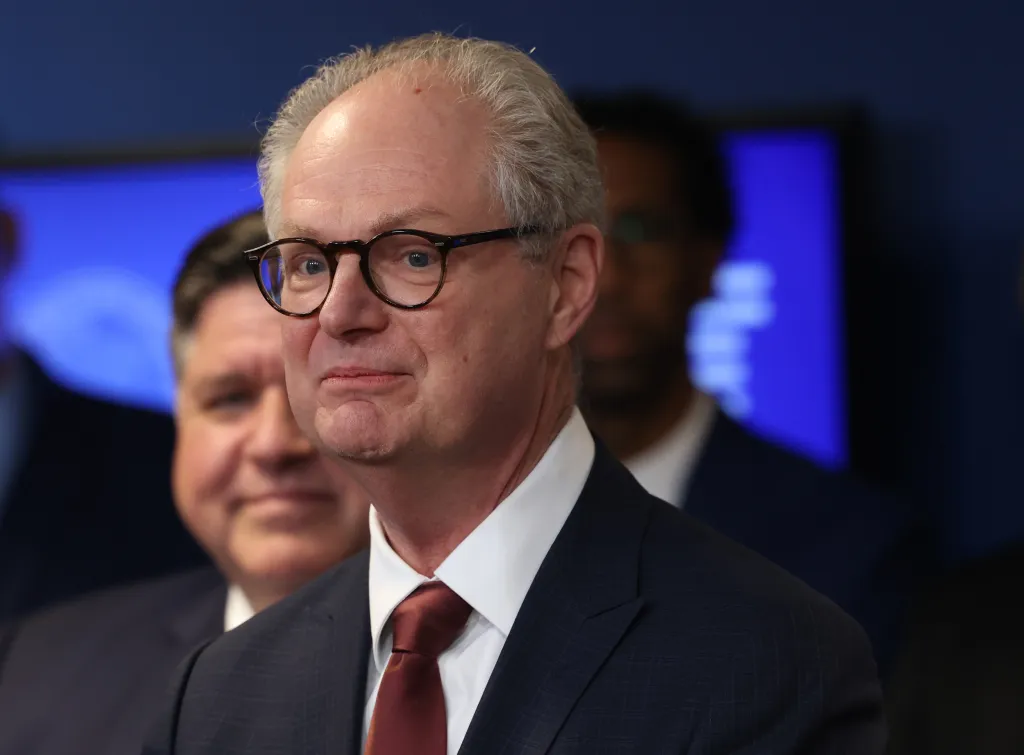By Hope Uzodimma,Rapheal
Copyright thesun

By Bennett C. Nwanguma
It is an honour of great proportions to serve as the reviewer at today’s book presentation. My first words, therefore, are words of appreciation and they are directed first at His Excellency, the Governor of Imo State, and then the organizers of the book presentation for the opportunity to play this key role.
The Review:
Title: The title of the book is: “A Decade of Impactful Progressive Governance in Nigeria”.
The Author: The author is Hope Uzodimma, (whom we all recognize as Senator Hope Uzodimma, The Governor of Imo State and Chairman of Progressives Governors Forum).
The Publisher: The book was published by Scribble City Publications.
Genre: The book fits into the genre of political science or politics.
Organization and Structure: This book of 373 pages is organised into 10 chapters, but also includes a foreword, an introduction and an epilogue.
The Chairman, with your approval, because of the uniqueness of the book, I intend to do a chapter-by-chapter review of the book, as follows:
The Introduction:
The author starts by revealing when and why he decided to write the book. Then gives due credit to the founder of the All Progressives Congress (APC), Ashiwaju Bola Ahmed Tinubu, President of the Federal Republic of Nigeria, and all those who played a key role in turning this coalition of smaller opposition parties into the success it has become.
He wraps up the introduction by highlighting the main goals of APC how it took advantage of the ruling PDP to mount a successful campaign of change in 2015.
Chapter 1: Early Progressive Movements and Parties in Nigeria (71 pages).
In this leading chapter of 71 pages, the author traces the history of progressive politics in the country, starting from the years before independence until the present time, culminating in the formation of the All Progressives Congress (APC) in 2013. In his opinion, all the nationalist movements of the pre-independence era, as well as the political parties of the 1st, 2nd and 3rd republics had varying degrees of progressive agenda in their DNA. The grain of this chapter is the contribution of progressive governance or policies to the development of the country over the years.
Chapter 2: Defining Progressive: A Clear and Concise Exploration of the Term (49 pages)
In this chapter, the author does the following: First, he defines the term (progressive) as applied in politics and governance, successfully traces the origin of progressive politics to the 19th and 20th centuries, and makes a distinction between progressive and conservative governance. This chapter is further enriched by a section on the evolution and impact of progressive governance in Europe, Latin America, Asia and, to a less extent, Africa.
Chapter 3: The APC Manifesto and its Core Policies (26!pages)
In this chapter, the author sets out to show the between the key progressive policies and programmes implemented in the last 10 years to the main tenets of the APC manifesto. He emphasizes the policies and programmes around social welfare, inclusiveness, economic reforms, investment in infrastructure, the fight against corruption and insecurity, as well as the establishment of the regional development commissions, etc.
Chapters 4: “A Decade of Progressive Governance: Sectoral Achievements (25 pages) and Chapter 5: “Progressive Governance in Action”(48 pages).
Chapters 4 and 5 constitute what I consider the kernel of this book, A Decade of Impactful Progressive Governance in Nigeria. This is because in these chapters, the author successfully highlights and discusses the many and far-reaching achievements of the APC-led administrations in the last decade.
Prominent amongst these are the social security programmes, the economic reforms (including the removal of the petrol subsidy and the harmonization of exchange rates), efforts at job creation, poverty alleviation, infrastructural development, especially housing and transportation infrastructure, including rail, road, air and sea transport. The others are improved access to education and healthcare, innovation and skills development, improved food security, agriculture, environmental sustainability, securityand defence. The author did not leave out the fiscal policies and reforms, which have brought the much-needed stability to the economy.
The additional information of chapter five is that these policies, programmes and reforms were well thought – through, articulated and carefully implemented as part of the progressive governance, hence the title, Progressive Governance in Action..
The Chairman, I am tempted to say, that anyone who does not have the stamina to read the entire book should go straight to these two chapters.
Chapter Six: Comparative analysis of- Pre-APC Era Vs APC Era (26 pages).
In this chapter, the author made an interesting attempt to compare the rate of progress recorded in the country between 2005 and 2015, when the country was led by a different political party, PDP, and the last decade, between 2015 and 2025, since the APC has been at the helm of affairs..
The author used five major parameters, namely economic performance, social development, infrastructure and global perception of Nigeria for the comparison.
The verdict is summed up in this sentence, quote: In the last decade of APC governance, we have begun to transform Nigeria. Economically, Nigeria is more resilient and self – reliant today than we were ten years ago. Nigeria is also reclaiming respect globally. This is the decade that Nigeria turned the corner from years of promise to years of achievement. The Nigeria of 2025 is far better than the Nigeria of 2015, judging by such indicators as the economy, health, education, infrastructure and all other indices by which development is assessed.
Chapter 7: APC’S Approach to Inclusive Governance (10 pages)
In this chapter, the author highlighted the policies, programmes and legislations by which the APC administrations managed the diversity of the country, ensuring inclusiveness and equity between the many ethnic nationalities and other marginalized groups, such as women, the youth, the poor and persons living with disabilities.
It is commendable that the author considered it necessary to dedicate an entire chapter to inclusiveness. In doing so, the author reiterated the fact that inclusiveness was one of the policy objectives of APC. The former president, Muhammadu Buhari put this poetically when he said, I belong to everybody and I belong to nobody. The incumbent president, Ashiwaju Bola Ahmed Tinubu put it more elaborately when he declared that his objective is to foster a new society based on shared prosperity, tolerance and compassion.
Chapter 8: Nigeria on the Global Stage (20 pages)
The author dedicated this chapter of 20 pages to Nigerian foreign policy. This, he said, is in keeping with the APC manifesto to “work towards a more engaged, more effective and more influential Nigeria on the global scene”. Here, the author acknowledges the achievements of the two APC – led governments of Buhari and Tinubu, not just in maintaining existing relationships but in strengthening them. He highlights how the APC governments improved the global standing of Nigeria and in their relationship with America, Europe and South Africa, and how they exploited these renewed global standing for both economic and security benefits.
Chapter 9: Common Criticisms of the APC Governance in the Last Decade (23 pages).
In this rather unique chapter, the author made a brave attempt to acknowledge and respond to some of the common criticisms which the APC – led administrations have faced over the years. The criticisms, as highlighted, bother on the management of the economy, policy direction, internal party crisis and threat to democratic norms. Others are ineffective fight against corruption, institutional weaknesses, the slow delivery of economic diversification and public service reforms.
The inclusion of this chapter must be seen as an attempt by the author to write a balanced book, that does not only heap praises on the party in power.
Chapter 10: The Way Forward for Democratic Governance in Nigeria (30 pages).
In this final chapter of 30 pages, the author sounded quite positive and optimistic about the future of Nigeria under the watch of the All Progressives Congress. This is due to his conviction that the policies, programmes,legislations and reforms needed to transform Nigeria have now been put in place. He likened this to the planting of seeds which are sure to bring forth a bountiful harvest.
The Epilogue (8 pages):
Here, the author simply summed up the key achievements or successes of the APC administrations under the familiar headings of economy, insecurity, the fight against corruption, social welfare, infrastructure, food security and agriculture, education and health, digital economy, workers welfare and , regional development.
Thereafter, the author gives credit to members of the APC, especially, the founder, President Bola Ahmed Tinubu, GCFR, the past and present leaders of the party, former and present holders of elected and appointed offices, whose ideas shaped the policies and programmes of APC.
The author ends the book with a peep into the future, and urged leaders to be prepared for the challenges that will be posed by climate change, artificial intelligence and other new technologies.
The Strength of the Book:
The author set out to articulate, chronicle and document the impact of progressive governance in Nigeria as delivered by the All Progressives Party in the last decade. Without an iota of doubt, the author has achieved this. The book is brilliantly written and the timing of the publication is also apt, more like a book whose time has come. The book deserves credit first for its originality, the uniqueness and the rigour that went into it. The coverage is extensive and the analysisis deep. The true value of the book lies not only in the rigour and dept of research, but also in the presentation.
The Weakness:
Like all works of man, the book is not without flaws. Most of it, however, are of editorial nature and can be easily dealt with in subsequent editions or publications.
The other flaw, as expected, is that the author may have left some gaps. In books of this nature, such gaps are seen as opportunities for others to contribute to the subject of progressive governance in the country.
Recommendation:
This is a book about governance and politics. So, who should read this book. My sincere response is: everyone who has an interest in governance and politics in Nigeria. To be honest, this should include all literate Nigerians.
Conclusion: Mr Chairman, His Excellencies, distinguished ladies and gentlemen, I have had the privilege of reviewing a good number of books in my career. This one stands out for its originality, the uniqueness and the purpose for which it was written. Without doubt, this book would serve as a valuable reference document for a long time to come. But, please do not take my word for it. Make an effort to read the book and draw your own conclusions.
My Final Words:
The Chairman, if you give me the latitude to share one of my favorite sections of the book, it would be found in the last paragraph of the conclusion, where the author acknowledged the contribution of the opposition to the success of the All Progressive Congress in the last decade, and I quote:
“I thank the opposition for keeping us on our toes and for challenging us to be a better political party. We know we have not solved all the problems of this country, and this was never our promise. But, as progressives, have we set Nigeria on a path of renewed hope? The answer is Yes”.
Thank you for listening.
•Professor Bennett C. Nwanguma, book reviewer



